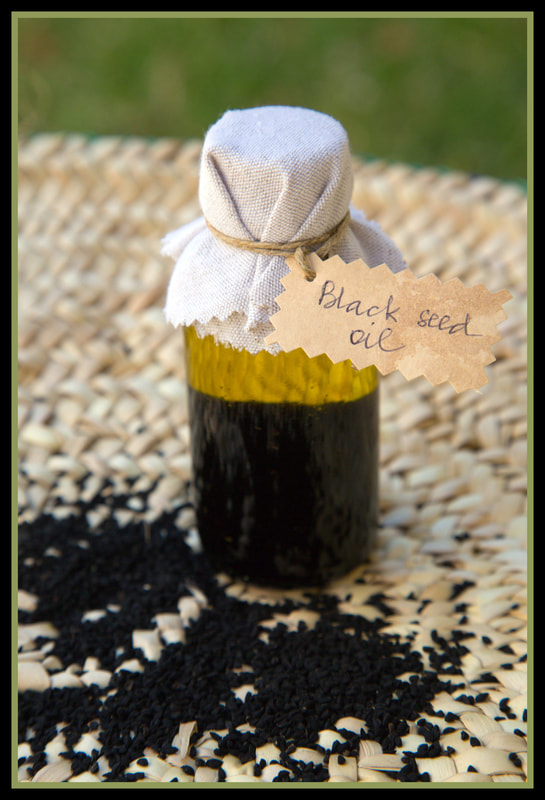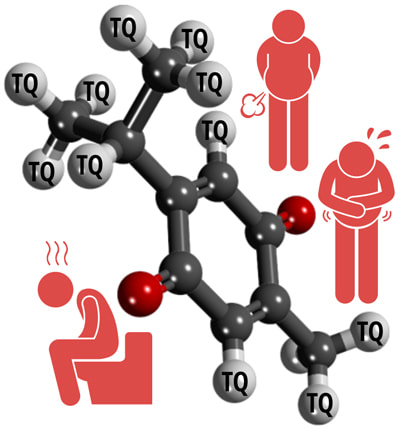- HOME - START HERE
- CONSULTATION SERVICES
- 911 EMERGENCY
- EBOOKS
- Store
- DOSAGES
- HOW TO TAKE
- ANTI-AGING
- CBD AND NIGELLA SATIVA
- RESEARCH SHOWS THAT CANCER RATES WILL RISE DRASTICALLY OVER THE COMING YEARS
- FIBRO CATEGORY
- HERPES CATEGORY
- HIV- Category
- Honey - Category
- Pets
- Top 20 Reasons to use Black Cumin Oil and Capsules
- STROKES CATEGORY
- WEIGHT LOSS CATEGORY
- ANSWER THE QUESTIONS
- Articles
- BLACK SEED OIL IS BETTER THAN TYLENOL FOR ARTHRITIS RELIEF
- Migraines - Headaches - 12 Remedies with Pictures
- My Protocol for Dementia Recovery
- PCOS and Nigella Sativa
- PRIVACY POLICY - GDPR COMPLIANT
- My Team
- About
- Healthy Articles
- Nigella Sativa Online Courses - Part 1
- Childhood Epilepsy
- Natural Diuretics
- Healing Effect on Sarcoidosis
- Nigella Sativa Respiratory Illness
- Cardiovascular Disease
- Depression and COVID19
- 12
- How to Use Nigella Sativa
- How Contagious is Leprosy
- Supporting Human Health - The Immunomodulator
- Nigella Sativa Cancer Ebook
- OK, I am a Muslim - Now What?
- Everything You Ever Wanted to Know About Black Seeds
- Islam Cancer Ebook
- DONATION
- Nigella sativa is an safe alternative Non-Hodgkin’s treatment option
- RESEARCH ON WHY YOU SHOULD HEAT NIGELLA SATIVA SEEDS
- Black Seed Cuisine Ebook
- IS THERE A CURE FOR LUPUS - NATURAL SOLUTIONS
- Black Seed Oil
- TURMERIC DETOX AND MORE
- MASTERS OF HEALING
- PAYMENT RECEIVED
- Non-clickable Page
- IRRITABLE BOWEL SYNDROME - NATURAL SOLUTIONS
- MY CANCER COLLECTION
- CONTACT
The Purity of Black Seed Oil is Based on the Quality of Thymoquinone Levels
Not the Percentage as You
have been led to believe.
THIS ARTICLE WAS WRITTEN BY DR. MUHAMMAD MUHKTAR, GOOGLE NOTED SCHOLAR AND HEAD WRITER AND REVIEWER HERE.
THIS ARTICLE IS COPYWRITTEN FOR NIGELLASATIVACENTER.COM ONLY. ALL RIGHTS RESERVED.
YOU MAY SEE AFFILIATE LINKS BELOW. THESE PRODUCTS ARE HAND PICKED BY ME FOR YOU.
IF YOU CHOOSE TO BUY, WE MAY RECEIVE A SMALL COMMISSION.
THIS ARTICLE IS COPYWRITTEN FOR NIGELLASATIVACENTER.COM ONLY. ALL RIGHTS RESERVED.
YOU MAY SEE AFFILIATE LINKS BELOW. THESE PRODUCTS ARE HAND PICKED BY ME FOR YOU.
IF YOU CHOOSE TO BUY, WE MAY RECEIVE A SMALL COMMISSION.
As more and more black cumin oils hit the market, the question comes up to me on my channels as to how much TQ is in your oils you recommend. I have tried to emphasize over and over again the percentage of thyminoquinone is not as important as the quality of the seed used to produce the oil. In this article we will discuss how quality of thyminoquinone is not the same in all oils.
BLACK SEED OIL QUALITY CHALLENGES
|
Black Seed Oil Demands Continue to Increase
The marketwatch.com press release in the August 2019 entitled "Black Seed Oil Market 2019 Trends, Industry Projection, Regional Analysis, and Forecast to 2025[1]” suggests a positive trend in future sales of this important dietary ingredient that is beneficial for systemic and superficial (skin) infections and several non-infectious chronic disorders. Black seed oil is consumed and utilized in several ways, including direct consumption, capsules, and topical applications is being incorporated in a skincare product and a variety of massage oils. The above-described report suggests that the Black Seed oil market in selected countries like Saudi Arabia and China is going to enhance at the levels of 6-7%, whereas the UK, USA, and Italian markets will see significant enhancement by the year 2025. The expected demand for only a single country in the UK is going to surpass 35 tons annually. The continued enhanced requirements have prompted adulteration of the product for improving their profits. There is a need to define the overall quality of this oil; however, oil-soluble fraction thymoquinone has received relatively greater attention and is considered as a major quality indicator. |
Thymoquinone is Major Constituent of the Black Seed Oil
Thymoquinone is a phytomedicinal component mainly found in Nigella sativa seeds oily fraction. As the name indicates, this beneficial constituent of important plant recognized for its therapeutic potential for centuries belongs to a family of compounds known as quinones.
The International Union of Pure and Applied Chemistry has characterized this plant with a scientific name, 2-Isopropyl-5-methylbenzo-1,4-quinone. The Nigella sativa oil has shown its therapeutic potentials in several ailments, including a variety of inflammatory disorders, cardiovascular illnesses, cancer, neurological and neurodegenerative disorders, and diabetes.
Thymoquinone has been recognized as the major fraction of black seed oil exerting health-promoting benefits and strengthening human body immunity to fight against a variety of diseases. It is essential to look retrospectively while discussing black seeds as it has been used for curing ailments since time immemorial. In Islamic medicine, it attained particular importance based on the Prophet Mohammad (PBUH) saying, "Black seeds heals every disease except for death."
Modern medicine is proving the benefits of black seeds and identified thymoquinone on the major therapeutic component in the oily fraction.
The International Union of Pure and Applied Chemistry has characterized this plant with a scientific name, 2-Isopropyl-5-methylbenzo-1,4-quinone. The Nigella sativa oil has shown its therapeutic potentials in several ailments, including a variety of inflammatory disorders, cardiovascular illnesses, cancer, neurological and neurodegenerative disorders, and diabetes.
Thymoquinone has been recognized as the major fraction of black seed oil exerting health-promoting benefits and strengthening human body immunity to fight against a variety of diseases. It is essential to look retrospectively while discussing black seeds as it has been used for curing ailments since time immemorial. In Islamic medicine, it attained particular importance based on the Prophet Mohammad (PBUH) saying, "Black seeds heals every disease except for death."
Modern medicine is proving the benefits of black seeds and identified thymoquinone on the major therapeutic component in the oily fraction.
Normal Levels of Thymoquinone in Black Seed Oil
|
Scientific studies have shown that thymoquinone levels in the black seed oil are highly stable and does not vary with the temperature.
Moreover, the usual contents of thymoquinone are 28.6% second highest after the p-cymene, which is 44.77%[2]. There have been extensive studies about the therapeutic benefits of thymoquinone, and as such, its relative levels in the black seed oil overall determines its therapeutic potentials. Due to the higher commercial value of the thymoquinone containing oil, adulteration has become a significant issue that needs to be addressed for maintaining the quality of this traditionally used product for centuries. |
Thymoquinone Levels Determine the Quality of Black Seed Oil
It has become a fact that thymoquinone is the primary therapeutic element in black seed oil and is associated with the overall quality. Scientists are working on devising a methodology to standardize the amounts of thymoquinone as an indicator of black seed oil purity.
However, associated methods for quality assessment are very cumbersome. A very sensitive methodology known as Ultra-violet spectroscopy methodology was used to asses the thymoquinone contents of 30 commercially available black seed oil samples. It was observed that different commercial samples vary in the contents of thymoquinone at the vast range.
For example, the scientific study being described here identified that thymoquinone content variations range from 0.010 in a commercial sample from the Kingdom of Saudi Arabia to 13.296 mg/g oil in an Egyptian sample [3]. Such a wide variation very much aligns with our hypothesis that it is crucial that standardized methods need to be developed for controlling black seed oil markets.
A recent study further highlights the importance of sophisticated techniques development for ascertaining the purity of black seed oil. In this study, chemical and light-based methodologies were used for detecting adulteration in black cumin seed oil, and its detection limit is below 5%[4]. In the day ahead, highly refined methodologies are needed for coping and curbing rogue businesses.
However, associated methods for quality assessment are very cumbersome. A very sensitive methodology known as Ultra-violet spectroscopy methodology was used to asses the thymoquinone contents of 30 commercially available black seed oil samples. It was observed that different commercial samples vary in the contents of thymoquinone at the vast range.
For example, the scientific study being described here identified that thymoquinone content variations range from 0.010 in a commercial sample from the Kingdom of Saudi Arabia to 13.296 mg/g oil in an Egyptian sample [3]. Such a wide variation very much aligns with our hypothesis that it is crucial that standardized methods need to be developed for controlling black seed oil markets.
A recent study further highlights the importance of sophisticated techniques development for ascertaining the purity of black seed oil. In this study, chemical and light-based methodologies were used for detecting adulteration in black cumin seed oil, and its detection limit is below 5%[4]. In the day ahead, highly refined methodologies are needed for coping and curbing rogue businesses.
Quality Issues in Black Seed Oil
There is no question about the benefits of black seed oil. The scientific and empirical literature is full of information relevant to this useful dietary ingredient. Importantly, future market trends strongly show increased demands for this product. Unfortunately, there is no standardized methodology that can very accurately predict the purity of black seed oil.
Predatory commercial ventures will try to undermine the oil providers utilizing high standards in its purification and maintaining quality. Although, it is being hoped that in the future, there will be a regulatory authority managing the quality of black seed oil based on thymoquinone content, the major beneficial element.
Predatory commercial ventures will try to undermine the oil providers utilizing high standards in its purification and maintaining quality. Although, it is being hoped that in the future, there will be a regulatory authority managing the quality of black seed oil based on thymoquinone content, the major beneficial element.
Advice to Black Seed Oil Customers
Based on the involvement of our company in the supply of high-quality black seed oil, we suggest the following to our valued customers and the general public at large:
- Always obtain black seed oil from trusted suppliers having a good reputation in the market.
- There is no standardized method pointing toward the exact purity of the oil, although it is being hoped that soon high-quality methods certifying the quality of this oil will be available.
- Based on the increased market demands of the black seed oil in both developing and developed nations, it will be mandatory to establish minimal standards for its marketing and associated quality parameters.
- Although thymoquinone has been identified as one of the therapeutic components in black seed oil, there is quite a possibility that several other unknown ingredients in this oil might be working synergistically for its health-promoting benefits.
- Importantly, the Muslim community across the world has a special obligation to make availability of this oil in highly purified form as its benefits are enshrined in Prophet's saying.
References
1. Black Seed Oil Market 2019 Trends, Industry Projections, Regional Analysis, and Forecast to 2025.https://www.marketwatch.com/press-release/black-seed-oil-market-2019-trends-industry-projections-regional-analysis-and-forecast-to-2025-2019-08-14, 2019.
2. Kıralan, M., Changes in Volatile Compounds of Black Cumin (Nigella Sativa L.) Seed Oil During Thermal Oxidation. International Journal of Food Properties, 2014. 17(7): p. 1482-1489. https://doi.org/10.1080/10942912.2012.723231
3. Gad, H.A. and S.H. El-Ahmady, Prediction of thymoquinone content in black seed oil using multivariate analysis: An efficient model for its quality assessment. Industrial Crops and Products, 2018. 124: p. 626-632. https://www.sciencedirect.com/science/article/abs/pii/S0926669018307362
4. Nur Arsalan, F., et al., Rapid detection of authenticity and adulteration of cold-pressed black cumin seed oil: A comparative study of ATR–FTIR spectroscopy and synchronous fluorescence with multivariate data analysis. Food Control, 2019. 98: p. 323-332. https://www.sciencedirect.com/science/article/pii/S0956713518306005
1. Black Seed Oil Market 2019 Trends, Industry Projections, Regional Analysis, and Forecast to 2025.https://www.marketwatch.com/press-release/black-seed-oil-market-2019-trends-industry-projections-regional-analysis-and-forecast-to-2025-2019-08-14, 2019.
2. Kıralan, M., Changes in Volatile Compounds of Black Cumin (Nigella Sativa L.) Seed Oil During Thermal Oxidation. International Journal of Food Properties, 2014. 17(7): p. 1482-1489. https://doi.org/10.1080/10942912.2012.723231
3. Gad, H.A. and S.H. El-Ahmady, Prediction of thymoquinone content in black seed oil using multivariate analysis: An efficient model for its quality assessment. Industrial Crops and Products, 2018. 124: p. 626-632. https://www.sciencedirect.com/science/article/abs/pii/S0926669018307362
4. Nur Arsalan, F., et al., Rapid detection of authenticity and adulteration of cold-pressed black cumin seed oil: A comparative study of ATR–FTIR spectroscopy and synchronous fluorescence with multivariate data analysis. Food Control, 2019. 98: p. 323-332. https://www.sciencedirect.com/science/article/pii/S0956713518306005
|
COME JOIN MY MEMBERSHIP GROUP - DO YOU MISS ME? THE COST IS $9.95 PER MONTH. LEARN THE DEEP SECRETS OF BEING WELL.
PAYMENT LINK HERE |
STORE TESTIMONY CONTACT EBOOKS ABOUT PAGE PRIVATE POLICYAmazon Affiliate Disclosure
https://www.nigellasativacenter.com is a participant in the Amazon Services LLC Associates Program, an affiliate advertising program designed to provide a means for website owners to earn advertising fees by advertising and linking to amazon(.com, .co.uk, .ca etc) and any other website that may be affiliated with Amazon Service LLC Associates Program. “Amazon and the Amazon logo are trademarks of Amazon.com, Inc. or its affiliates.” Please note I am also an affiliate for Mountain Rose Herbs, , Shareasale and More. Please see our full disclosure here: Disclaimer: The information on this page and on this website has not been evaluated by the FDA. We do not diagnose, treat, cure or prevent illness or disease - instead, we try to help people learn how to do so themselves. Anyone who believes they have a serious medical condition or health issue should seek diagnoses from a qualified medical professional before making any decisions on how to best address their health. Furthermore, anyone contemplating using any products or information on this website must accept such use as experimental and voluntary. No claims are made regarding the therapeutic use of the products or information on this website and all products featured or sold on this website must be considered nutritional supplements only. -
Copyright Protected - Nigella Sativa.com - 2022-2025 - All Rights Reserved - Any infringe on our copyright will be prosecuted to the fullest extent of the law.
|
OWNER: SAMANTHA DAVIS
WEBSITE: BASED ON EVIDENCE ADDRESS: PO BOX 437, ZARGA, JORDAN 13110 PHONE: +962-53923471 HOURS: 5PM - 12AM - NY;TIME EMAIL: naturalliving [email protected] CONSULTATION FEES 1 STOP CENTER IS BASED ON ALL MODALITIES OF HEALING, NOT JUST NIGELLA SATIVA |
- HOME - START HERE
- CONSULTATION SERVICES
- 911 EMERGENCY
- EBOOKS
- Store
- DOSAGES
- HOW TO TAKE
- ANTI-AGING
- CBD AND NIGELLA SATIVA
- RESEARCH SHOWS THAT CANCER RATES WILL RISE DRASTICALLY OVER THE COMING YEARS
- FIBRO CATEGORY
- HERPES CATEGORY
- HIV- Category
- Honey - Category
- Pets
- Top 20 Reasons to use Black Cumin Oil and Capsules
- STROKES CATEGORY
- WEIGHT LOSS CATEGORY
- ANSWER THE QUESTIONS
- Articles
- BLACK SEED OIL IS BETTER THAN TYLENOL FOR ARTHRITIS RELIEF
- Migraines - Headaches - 12 Remedies with Pictures
- My Protocol for Dementia Recovery
- PCOS and Nigella Sativa
- PRIVACY POLICY - GDPR COMPLIANT
- My Team
- About
- Healthy Articles
- Nigella Sativa Online Courses - Part 1
- Childhood Epilepsy
- Natural Diuretics
- Healing Effect on Sarcoidosis
- Nigella Sativa Respiratory Illness
- Cardiovascular Disease
- Depression and COVID19
- 12
- How to Use Nigella Sativa
- How Contagious is Leprosy
- Supporting Human Health - The Immunomodulator
- Nigella Sativa Cancer Ebook
- OK, I am a Muslim - Now What?
- Everything You Ever Wanted to Know About Black Seeds
- Islam Cancer Ebook
- DONATION
- Nigella sativa is an safe alternative Non-Hodgkin’s treatment option
- RESEARCH ON WHY YOU SHOULD HEAT NIGELLA SATIVA SEEDS
- Black Seed Cuisine Ebook
- IS THERE A CURE FOR LUPUS - NATURAL SOLUTIONS
- Black Seed Oil
- TURMERIC DETOX AND MORE
- MASTERS OF HEALING
- PAYMENT RECEIVED
- Non-clickable Page
- IRRITABLE BOWEL SYNDROME - NATURAL SOLUTIONS
- MY CANCER COLLECTION
- CONTACT







